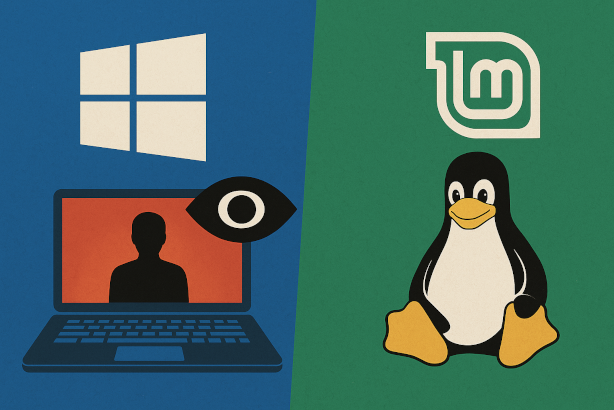
🧠 Microsoft promotes Windows Recall as a smart, futuristic feature: your PC “remembers” everything you’ve ever seen on your screen – every email, every website, every document. An integrated AI helps you instantly rediscover what you were looking for. It sounds like progress. In reality, it’s a troubling step toward self-surveillance.
👁️ Recall continuously takes screenshots of your desktop and stores them locally. Microsoft claims the data is encrypted and accessible only to you. But wherever data exists, risk exists. Any attacker, malware, or simple oversight could turn this “digital memory” into a serious security breach.
What’s marketed as a convenience feature is, in truth, a complete log of your digital life.
⚠️ Many users enable Recall without a second thought – because it sounds practical, because Microsoft seems trustworthy, or because convenience wins over privacy. Nobody would willingly grant an app full access to their photos, contacts, or calendar – yet when Windows offers the same level of data exposure, people often accept it without hesitation.
🔍 Windows Recall demonstrates how easily surveillance can be disguised as a helpful feature.
🐧 Under Linux, such a concept would be almost unthinkable. Open source code, transparent development, and a critical community ensure that control remains in the hands of the user.
A system like Linux Mint proves that security, stability, and usability don’t have to come at the cost of privacy.
💡 It’s time to shift the narrative:
Windows may win on convenience, but Linux leads where privacy truly matters.
More Information to Linux Mint:
